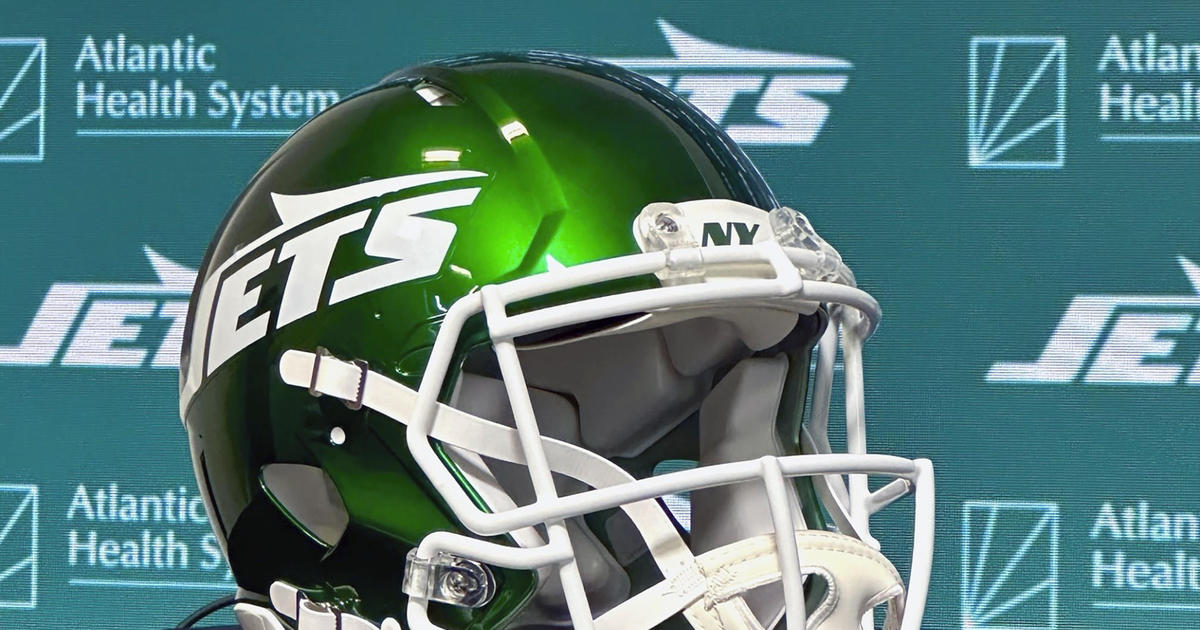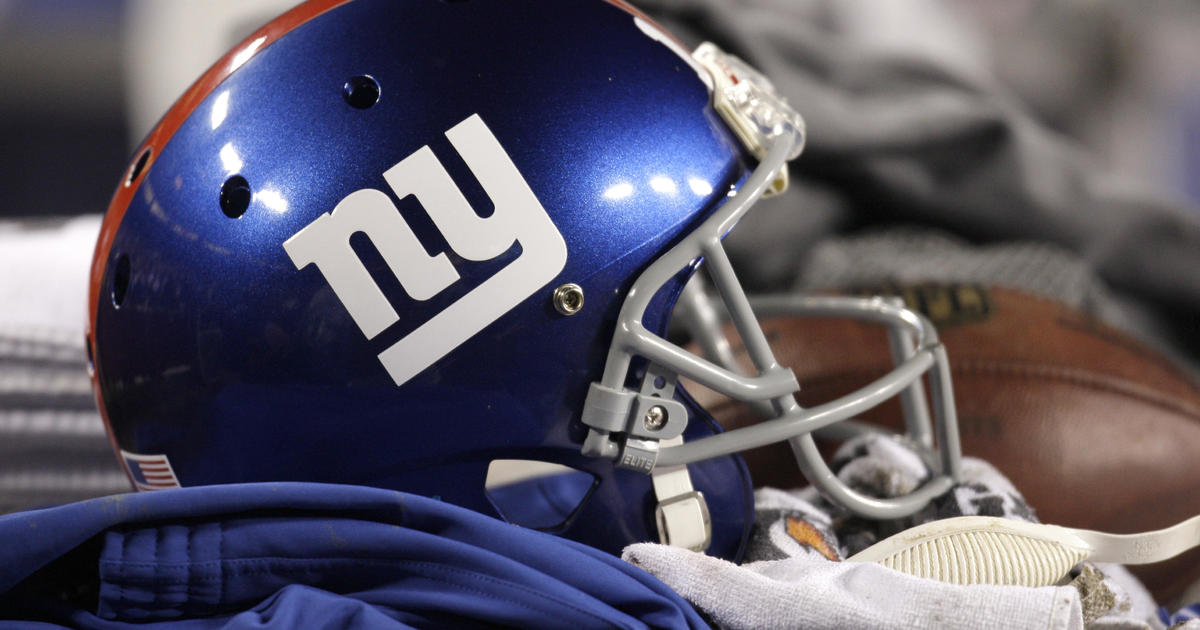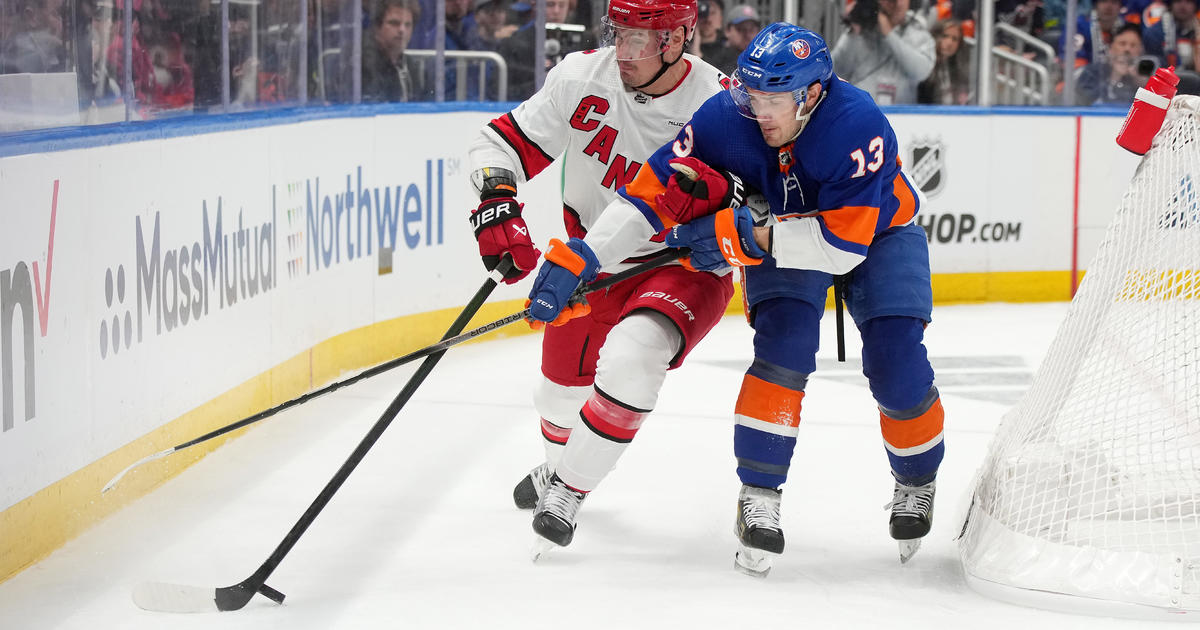Tell Us Again, NFL Owners: Why Is There A Labor Dispute?
NEW YORK (WFAN/AP) -- If NFL owners aren't careful, they might just force us to sympathize with guys who make more in a year than most will take home in a lifetime. Chad Ochocinco could come off looking like some sort of modern-day Cesar Chavez.
The real world keeps getting lost during all this talk of a possible lost football season.
Enough already.
On Monday, as people went back to work for less money than they used to make — or simply out to look for a job — it was abundantly clear this is NOT the time for the billionaires (a.k.a. the owners) to draw a line in the sand against the millionaires (a.k.a. the players).
RELATED: What Lockout? Giants Push Tickets, PSLs For 2011-12 | NFL, Union Resume Labor Talks; Deadline Friday
Not when checks are smaller and health insurance costs more for so many Americans. Not when "Bank Owned" signs are still a common sight in front of foreclosed homes. Not when Wisconsin, home of the Super Bowl champion Green Bay Packers, is paralyzed by a dispute between a state government that says it's broke and workers resisting a major whack to their benefits and union rights.
Haves vs. Have-mores. Give us a break.
The owners, especially, should remember the people who are hurting also happen to be their meal ticket. Without them paying hefty prices to attend in person or, more importantly, plopping down in front of the television on every given Sunday to produce exorbitant ratings for the networks, those checks adorned with a minimum of nine zeros would dry right up.
The men in suits sure aren't doing much to dissuade their image as fat cats intent on becoming fabulously obese when they stick with their demand for a bigger slice of an enormously profitable pie, right on the heels of an economic meltdown.
Settle this thing. Settle it now. And hope everyone forgets it even happened by draft day.
Sure, it's hard to work up much sympathy for either side when there's labor strife in the sports world, which by its very nature means the rich taking on the even-richer. No exception here.
The players are making good money. Real, real good money. But the salaries aren't guaranteed, and the average NFL career is shorter than any other sport. By comparison, Jerry Jones' ownership of the Cowboys is pretty much a lifetime appointment.
There are long-term ramifications in play as well. Every week, a sad story seems to emerge of some ex-jock who dies way too young or doesn't recognize his family anymore, likely because of the gruesome toll this sport takes on their bodies. We can expect to hear more of those stories if the owners get their way on another demand, increasing the regular season from 16 to 18 games.
Some other things to consider from the owner's perspective:
— The average franchise was worth just over $1 billion in 2009, according to Forbes, and virtually every owner can count on a huge return from his initial investment. For instance, Jones paid $150 million for the Cowboys in 1989; the team is now valued at $1.8 billion. The owners say those values don't mean anything until they sell. Tell that to the guy living on a measly unemployment check.
— The 32 teams made an average operating profit of $33.4 million in 2009, also according to Forbes. The average return on revenues was 13.3 percent. What does that mean? Well, consider what you've been paying to fill up your car. Makes you mad at those oil companies, doesn't it? Yet consider Chevron had a margin of 15.6 percent last year, ExxonMobil 13.8 percent, Shell 9.6 percent. Sure, their total profits were much larger, but the NFL's financial house would seem to be structurally sound.
— The NFL keeps saying it needs more money to offset the cost of stadium construction, wanting another billion off the top from what it shares with the players. In an op-ed piece last month, commissioner Roger Goodell wrote that new facilities are needed in Minneapolis, San Francisco, Oakland, San Diego — and Los Angeles? Goodell failed to mention the Atlanta Falcons are pushing for a new stadium financed with at least some public money, even though the Georgia Dome isn't even two decades old. Just be prepared to drive over plenty of potholes getting to the new stadium, because the city is otherwise strapped for cash.
The owners came off looking even worse in a federal judge's decision last week striking down television deals that would have provided a $4 billion revenue cushion during any lockout. Cushy, indeed. Heck, DirecTV would've had to pay the league more money if no games were played than if there was actually a season. A cost that would have undoubtedly been passed on to you know who.
The owners claimed those contracts were merely loans that would've been repaid to the networks, with interest. But the judge had a different take, ruling the NFL essentially blackmailed its TV partners by insisting that any resistance to the proposal would be a "deal breaker."
There might have been a time when those sort of deals were hailed as good business.
This is definitely NOT that time.
Who do you side with, the players or the owners? Sound off in the comments below...
(TM and Copyright 2011 CBS Radio Inc. and its relevant subsidiaries. CBS RADIO and EYE Logo TM and Copyright 2011 CBS Broadcasting Inc. Used under license. All Rights Reserved. This material may not be published, broadcast, rewritten, or redistributed. The Associated Press contributed to this report.)




